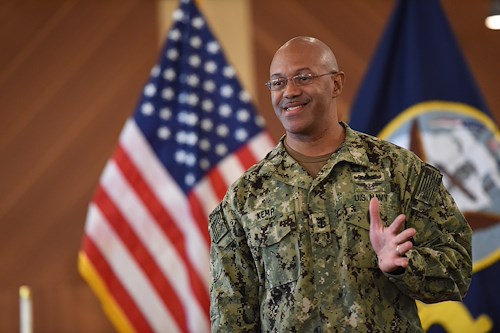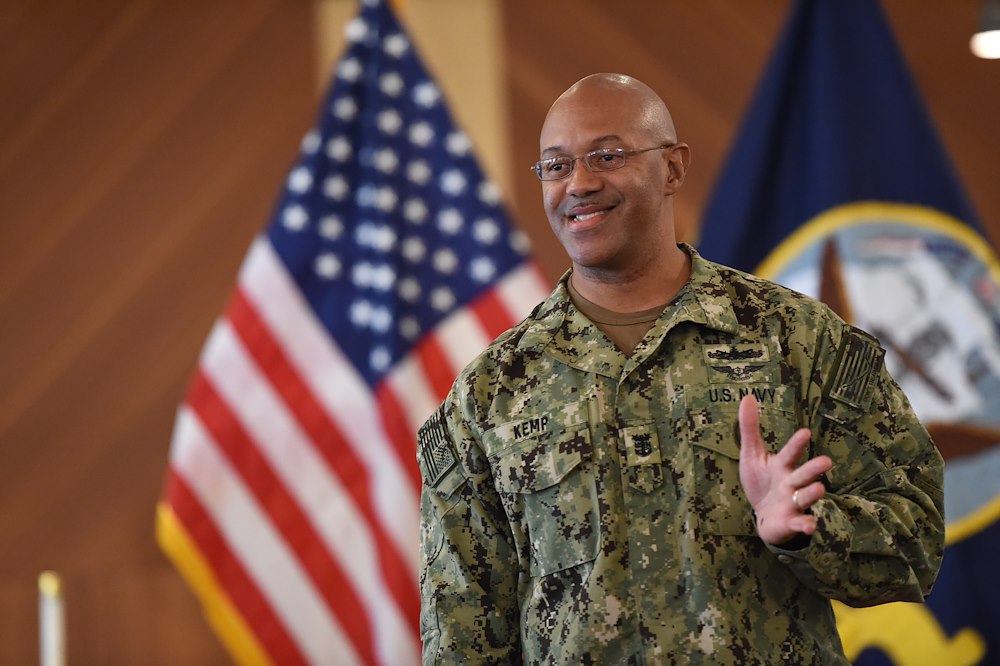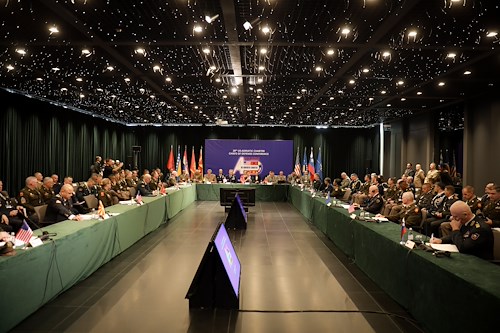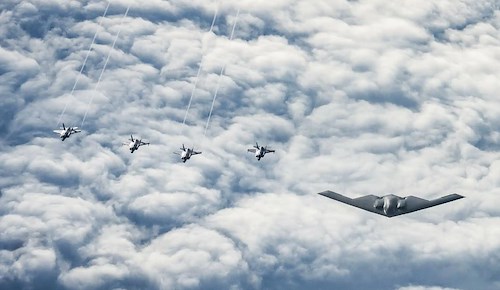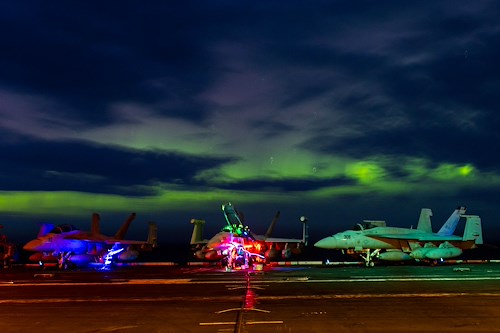Gallery contains 1 image
×
Photo 1 of 1
Religion, Security and Strategy Summit advises military planners
NAVEUR Senior Enlisted Leader at EUCOM to talk about the modernization plan.
Photo by: Lt Col Dave Faggard, USAF
PATCH BARRACKS, Germany – Dozens of joint U.S. European and Africa Command planners, chaplains and service members met here recently for a Religion, Security and Strategy forum hosted by U.S. European Command officials.
The annual event teaches military leaders how to account for religious issues on today’s modern battlefields, while also understanding how enemy, allied and partner-nation religions factor into today’s complex military landscape, according to U.S. Army Lt. Col. (Chaplain) Derrick Riggs, USEUCOM deputy command chaplain.
“In a time when the military must do more than attack, we must also inform commanders on their people’s needs, and the religious needs and traits of our adversaries,” Chaplain Riggs said regarding efforts in today’s changing strategic environment. “Religion has been used in the past in conflict; we must understand these dynamics.”
The forum discussed how military officials should incorporate religious advisement and leader engagement into their commander’s decision making, while also understanding how National Power effects the battlespace, according to Riggs.
A major focus of the forum dealt with the regional and global challenges from terrorism, including of the Islamic State in Iraq and the Levant, otherwise known as ISIL.
“ISIL is now a global phenomenon that manipulates religion for its own purposes and will require the U.S. to have a global strategy that varies locally -- from Nigeria to Central Asia to Indonesia,” said Doctor Chris Seiple, the program's keynote speaker who also served as advisor to the U.S. Secretary of State and co-chair of the Secretary's Religion & Foreign Policy working group. “Balancing hard and soft power in cooperation with the host nation, and its faith communities-- the chaplains could be a key bridge in this strategy.”
Religion should be considered in planning and decision making, according to the Lt. Col. Riggs.
“From a regional historical perspective, as well as the conflicts in the Middle East, there’s an opportunity to examine, and reflect on, how religion has shaped these events,” he said.
“The role of the chaplain is evolving,” said Lt. Col. Riggs. “In an era with constant information flow, chaplains provide another point of data for a commander’s decision making process, especially regarding soft power.”
Understanding how these soft-power principles apply in a Joint Combatant Command is essential.
“We’re leading in a command that’s so much more than [kinetics],” said Ms. Amy Williams, Knowledge Management Business Process Engineer, EUCOM Directorate of Operations. “We need to understand what guides these people; understand what leads them and understand what motivates them.” Religion’s impact on leaders and policies throughout the world were discussed.
“Religious tolerance, and how to deal with different leaders in different locations is important, especially in Africa,” said U.S. Air Force Technical Sgt. Jonathan Mathe, a Chaplain’s Assistant deployed from Altus AFB, Oklahoma and assigned to the U.S. Africa Command Religious Support Team. “This forum really helped us bridge the gaps. We help our leaders at [remote] locations because they meet with local leaders.”
Forums like these help leaders understand their environment because the environment they’re operating in may be much more different than how the service members operates back home in the United States.
“These are a people of faith. In Africa, religion is front and center and this is how they define themselves,” said U.S. Air Force Captain [Chaplain] Quentin Gerke, deployed from Dover AFB, Delaware and assigned to the USAFRICOM RST. “Strategically, these help the chaplains be a part of the bigger whole.”
Dr. Seiple, a former Marine infantry officer who has traveled widely throughout Eastern Europe, the Middle East and North Africa, as well as East Asia, was invited to speak at the forum to help leaders understand religion in the context of strategy.

